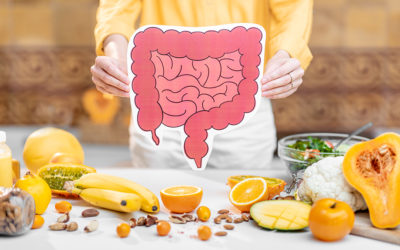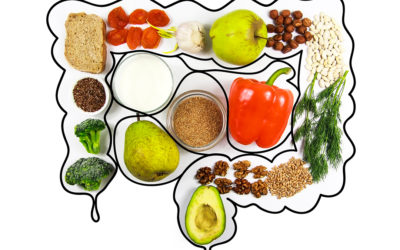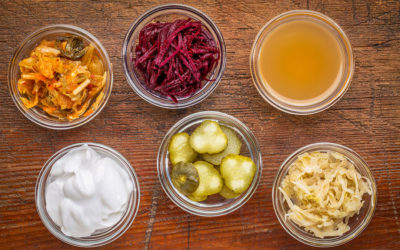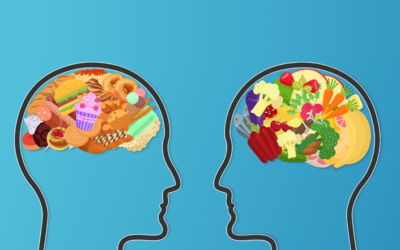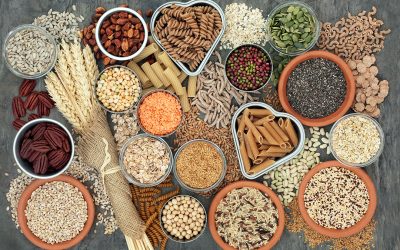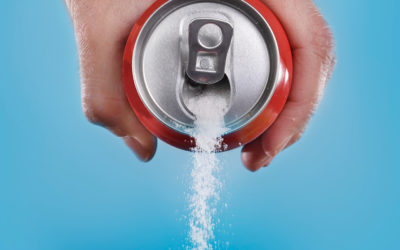Diet and Exercise
Good Foods for Gut Health – Part 3: Digestion
For part 3, we’ll turn our focus toward foods that can aid our gut health in other ways, like improving digestion, reducing inflammation, and reducing the symptoms of conditions like irritable bowel syndrome (IBS).
Good Foods for Gut Health – Part 2: Fiber
The gut is home to trillions of bacteria in the body. Some of these bacteria are bad. They can cause infection, sickness, or discomfort. Other bacteria are good. These good bacteria, also known as probiotics, help us to digest food, encourage bowel movements, fight off bad bacteria and other pathogens, and much more. Maintaining a healthy balance of good bacteria in the gut is important to keep the bad ones in check.
Good Foods for Gut Health – Part 1: Fermented Foods
The gut is home to trillions of bacteria in the body. Some of these bacteria are bad. They can cause infection, sickness, or discomfort. Other bacteria are good. These good bacteria, also known as probiotics, help us to digest food, encourage bowel movements, fight off bad bacteria and other pathogens, and much more. Maintaining a healthy balance of good bacteria in the gut is important to keep the bad ones in check.
Are Fermented Foods Good Sources of Probiotics?
Fermentation is a technique that has been used to preserve food for thousands of years. Many places without reliable refrigeration or electricity still use fermentation to store food, but even many of those with access to refrigeration implement fermented foods into their diets because they’re delicious and nutritious! The most common kind of fermentation in foods is lactic acid fermentation, in which bacteria and yeasts are used to convert starches or sugars into lactic acid. This is how foods like pickles, sauerkraut, sourdough bread, and kimchi are made. It’s also the method used to make yogurt, which we have talked about previously. The other common forms of food fermentation are ethyl alcohol fermentation (wine, beer) and acetic acid fermentation (apple cider vinegar).
Overeating and How the Brain Reacts to Food
People tend to assume that they stop eating when they feel full, but many of us don’t. Why do we overeat? Some people overeat because their portion sizes are too big, and they don’t stop until their plate is clean. Others eat too much because they’re overly stressed, emotional, or just plain bored. Sometimes a dish is just so good that it feels wrong to let it go to waste. Scientists have long thought that certain individuals are more predisposed to overeating than others, but research as to why this is the case is ongoing. According to a pair of new studies, the way our brains reward us for eating may play a significant role.
Does Food Tracking Really Help You Lose Weight?
As modern society trends toward lifestyles that are decreasingly reliant on physical activity, and process foods are cheaper than ever, obesity continues its reign as one of the most alarming global health-related topics. This is especially true here in the USA, where obesity rates in adults are nearing 40% in several states. Recent statistics indicate that obesity-related diseases and disorders are responsible for 18% of deaths in Americans ages 40 to 85.
Can You Have a Healthy Diet with a Limited Budget?
We feel better when we eat well. We have more energy, we think more clearly, and our mood improves. Yet, time and time again, we default to junk food. Keeping a healthy diet can be a struggle for so many reasons. Maybe we’ve got a wicked sweet tooth, and the only cure...
How Dietary Fiber and Gut Bacteria Protect the Cardiovascular System
Researchers have known for some time that gut bacteria are responsible for a wide range of beneficial substances utilized throughout the body. This includes a number of vitamins, proteins, and metabolites. We also know that the ability of gut bacteria to produce these...
Healthier Heart Equals Healthier Gut
If there’s one universal truth that medical and health professionals of all varieties seem to agree on, it’s that exercise is the one true miracle drug. It improves mood, fuels weight loss, strengthens muscles and bones, increases energy levels, improves memory,...
The Mediterranean Diet and Healthy Aging
The Mediterranean diet has been a go-to recommendation for forming healthy eating goals for many years. Cultures around the Mediterranean region live longer, healthier lives than their American counterparts, and their diet is believed to be a large factor. This diet...
Food Allergies
Food allergies are serious, potentially life-threatening conditions that have been on the rise over the past two decades. Rates among children have risen by over 50% since 1997, with 1 in every 13 children in the United States currently affected. Food allergies occur...
Craving: Why Are We Willing to Pay More for Unhealthy Foods?
Eating well is tough. Cookies, sugary cereals, and sweetened frappuccino’s are dietary staples for people around the globe. Most of us know that these foods aren’t great for weight gain or overall health, yet we continuously choose them over healthier alternatives....
How Much Sugar is in the Foods We Eat?
It’s no secret that sugar is a large contributor to the obesity epidemic in the United States. According to the World Health Organization guidelines on sugar intake, the daily-recommended allotment of sugar is no more than 30g per day. That’s less than one can of...
Humarian Dimensions of Health
It’s a new year, and with a new year comes new goal setting for getting healthy. As we all know, becoming healthy is not always an easy process. It can require serious commitment and legitimate lifestyle changes. Human beings have more choices for healthy living today...
Can diet alone cure Crohn’s disease and ulcerative colitis?
According to a recent study, yes! Dr. David Suskind, a gastroenterologist at Seattle Children’s Hospital, led a study demonstrating that pediatric patients with active Crohn’s disease and ulcerative colitis (UC) were brought into clinical remission through dietary...

